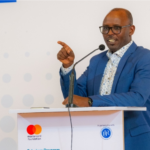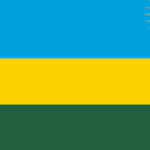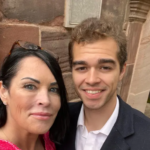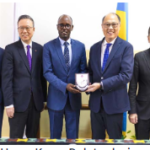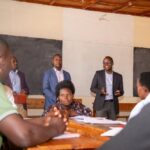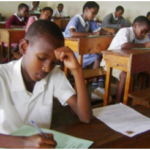Zimbabwean academic Professor Shadreck Chirikure became an archaeologist due to an accident. He had wanted to pursue a career in finance, but when he did not get the required grades, the University of Zimbabwe assigned him archaeological sciences. Reluctantly, he took it up but, with time, everything began to fall into place.
His good grades earned him a scholarship to pursue a masters and a doctorate at University College London. He then studied finance, but decided archaeology was more interesting.
While an academic at the University of Cape Town (UCT) in South Africa, Chirikure worked on one of the biggest finds ever of gold coins – nearly 4,000 on the wreck of the Bom Jesus, a Portuguese galleon that sank in 1533 and was found in 2008 in Namibia with treasure and a time capsule inside, Türkiye Newspaper reported on 12 July 2023.
Chirikure was awarded the European Research Council (ERC) Advanced Grant for senior researchers to pursue ambitious projects that could lead to major scientific breakthroughs, the University of Oxford reported on its website on 11 April 2024.
Chirikure will conduct fieldwork across eight countries – Angola, Botswana, Eswatini, Malawi, Mozambique, South Africa, Zambia, and Zimbabwe – to improve the understanding of the spread of Bantu speakers across Southern Africa between circa 300BCE and 1500CE.
University World News spoke to him about his archaeological journey and the work he will conduct in Africa.
UWN: What drew you to archaeology?
SC: A pure accident. Archaeology happened to be one of the subjects that I was given at the University of Zimbabwe for a BA general degree and, to be honest, I did not like it at all. Time changes things, of course. I studied towards a BA, followed by a BA Honours degree at the University of Zimbabwe. I completed a Masters in artefact studies, followed by a PhD in archaeology at the Institute of Archaeology, University College London (UCL).
UWN: Tell us about your journey to Oxford University.
SC: Upon graduating with a PhD from UCL, I went to UCT as a University Research Council postdoctoral research fellow, becoming a lecturer and rising to full professor. In 2018, The British Academy announced a prestigious competition to bring top professors to spend four years in the UK working on a topic of their choice.
I became one of the inaugural British Academy Fellows in the School of Archaeology in Oxford but on secondment from UCT. Later, I permanently joined Oxford as the Edward Hall Professor of Archaeological Science, and director of the Research Laboratory for Archaeology and the History of Art.
UWN: You were recently awarded a €2.5 million (US$2.7 million) grant by the European Research Council. What project will you be undertaking and what is its significance?
SC: The ERC project applies methods and techniques from the sciences in conjunction with the humanities to innovatively explore the movement of people and their ways of life in Southern Africa over 2,000 years ago.
Back then, modern political boundaries did not exist (they were created in 1884-5 at the Berlin Conference), and people moved around exchanging genes, economy, languages, material culture, lifestyles and beliefs. The project aims to reconstruct some of these central elements of past ways of life.
The hypothesis is that people and things moved in different directions, so studying the evidence scientifically will produce patterns of trade and movement. The results can help support ideas about regional and continental integration.
The Southern African Development Community and the African Continental Free Trade Area, for example, are only attempts to revive what African mothers and fathers were doing long ago. Then the issue of citizenship becomes vital where no one can claim to be original to their country as people move around. How, then, can we use shared histories of movement to promote pan-Africanism and regional economic integration and cooperation?
UWN: In your view, what are the conservation needs of Southern African heritage sites?
SC: Sustainable conservation goes hand in hand with sustainable use. We cannot use heritage sites unless we protect and preserve their fabric, surroundings and associated values. We should not, however, preserve for the sake of preservation.
Heritage sites must employ local people. Great Zimbabwe has so much potential, and Victoria Falls supports a powerful economy. The Cradle of Humankind in South Africa and the Sudanese and Egyptian Pyramids are other examples.
UWN: What has been your signature archaeology moment?
SC: Working at Great Zimbabwe. The study of the past is often seen as an obsession with curiosities of the past. Great Zimbabwe was seen as such – a collection of neatly arranged stones standing as a testament to former greatness. The question for me became what we can learn from Great Zimbabwe to improve lives and livelihoods in Africa. My research combines techniques from the sciences and the humanities to reconstruct technology, economy and international relations in Great Zimbabwe.
The research shows how the cattle economy was managed, how agriculture was organised, and how the industry was organised. It is showing that sustainability was built in how Great Zimbabwe was managed. Everything was planned, including resource management, technological systems and responses and contributions to environmental change. We have so much to learn from the past as we make the present and future better. Without sustainable production, we cannot develop, so the more we look at the African past for inspiration, the better.
UWN: You wrote a book, Great Zimbabwe: Reclaiming a ‘confiscated’ past. To an ordinary person, it would sound like a history book. What is the difference between an archaeologist and a historian?
SC: Archaeology is the study of the past using remains that people left, while history is the study of the past using documentary and oral sources. Because literacy was recently introduced to Southern Africa and oral traditions do not go beyond 300-500 years, archaeology is the main method of writing history for the longest part of human history. Both are ways of writing history, and I combine them in my book Great Zimbabwe.
UWN: Is it possible to exploit archaeological data to solve climate change challenges?
SC: Archaeology deals with a long-term record of human experience and the interaction between cultural and natural systems. Remains of plants, animals, material culture and sediments contain partial histories of past climatic regimes. When studied using appropriate scientific techniques, it is possible to model how climate changed and how humans responded to it. It is a pity that, despite this potential, archaeology does not feature much as a discipline when governments and intergovernmental bodies are discussing climate change.
Human behaviour is vital for achieving change so, hopefully, archaeologists will be invited to the table.
UWN: Is artificial intelligence assisting in archaeology?
SC: Deep learning is particularly useful in archaeology and, like every technology, has its advantages and disadvantages. We use machine learning for classifying archaeological materials and modelling networks through which people and objects are used. My ERC project heavily relies on artificial intelligence. The key is to understand that algorithms cannot replace people. They are of use, but we still need humans to do the work.
UWN: Tell us about your work in the United Nations office of the special adviser for Africa?
SC: My research deals with technology and draws from the sciences and indigenous knowledge. We work with the office of the UN Under-Secretary General and Special Adviser on Africa to mobilise STEM to help African governments address SDGs, and STEM as a lever for education, skills development, and industrialisation.
UWN: African universities and archaeology. Your comment?
SC: Africa holds some of the most significant archaeological sites and remains from the past in the entire world. From human origins sites to Ancient Egypt and Nubia, the medieval stone-carved churches of Lalibela in Ethiopia, Great Zimbabwe, and the Benin Bronzes, the continent has so much to offer. This heritage is often used to promote tourism and local economic development. However, often the presence of the sites is not used to develop archaeology. Some of the signature research is done only by those from outside the continent, and Africans are still assistants as they were during colonialism.
How can we capacitate African universities so that, working with others, they can be serious archaeology knowledge producers feeding into other sectors of the economy and society overall? Archaeologists ought to be contributing to the African Continent Free Trade Area because they deal with how Africa was integrated before colonialism. They ought to contribute to climate change, entrepreneurship, and to gender equality. This requires a transformation of the curriculum to ensure that the skills set in archaeological deposits are taught in practical ways to create opportunities in the present.
African universities must also invest in archaeology and create facilities that will ensure that research and teaching flourish. The salaries must be competitive. There is great promise because the sites are there, the remains are there, so a mindset shift is required to ensure that this inheritance from the past benefits people in the present and future.

